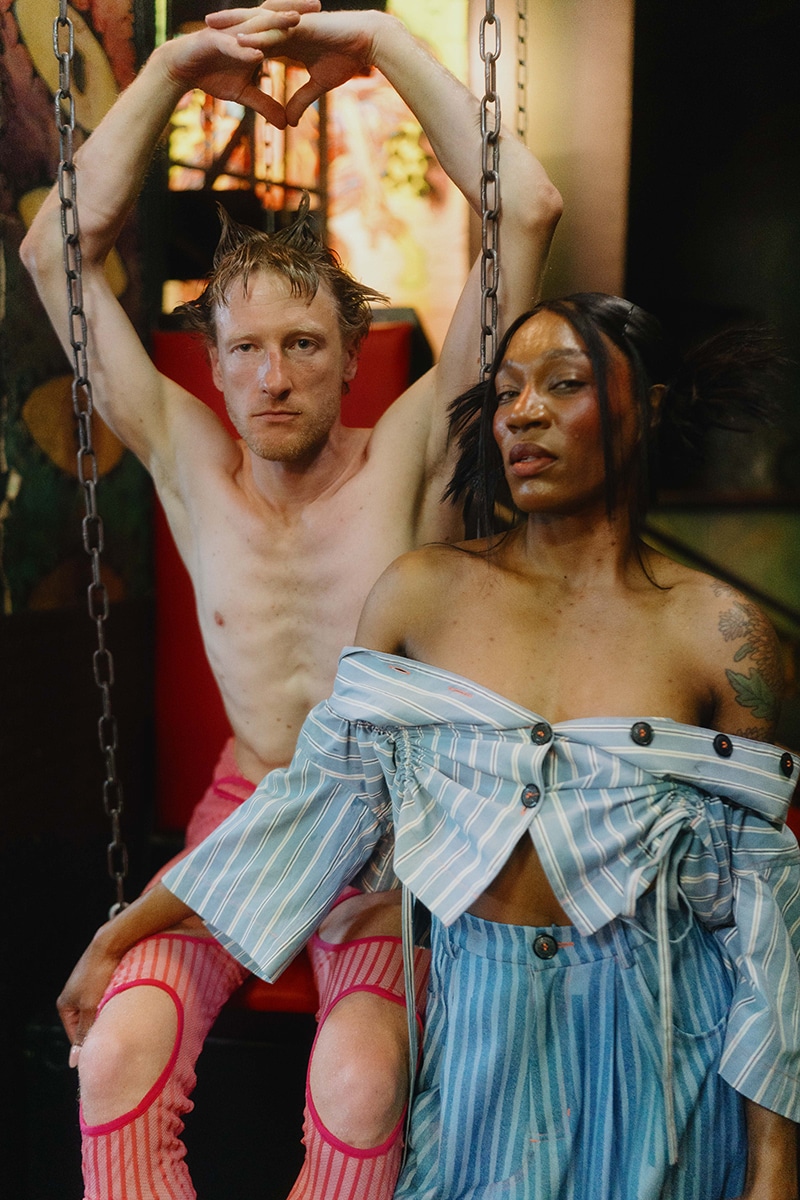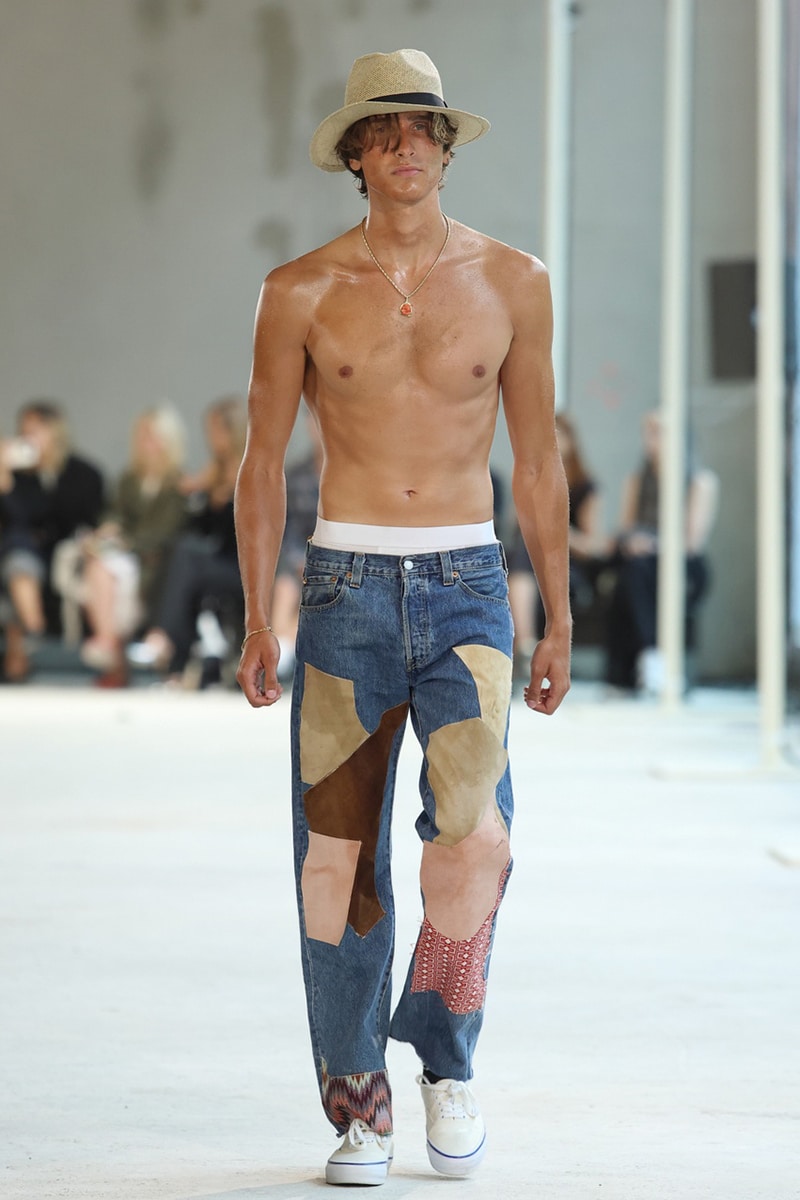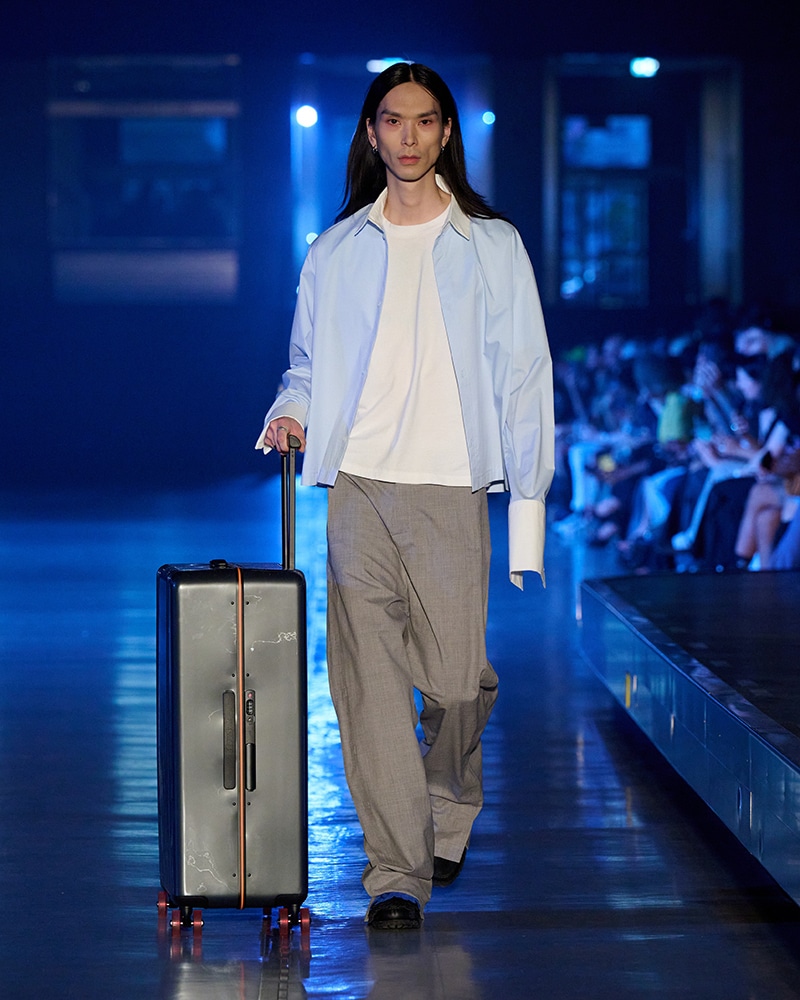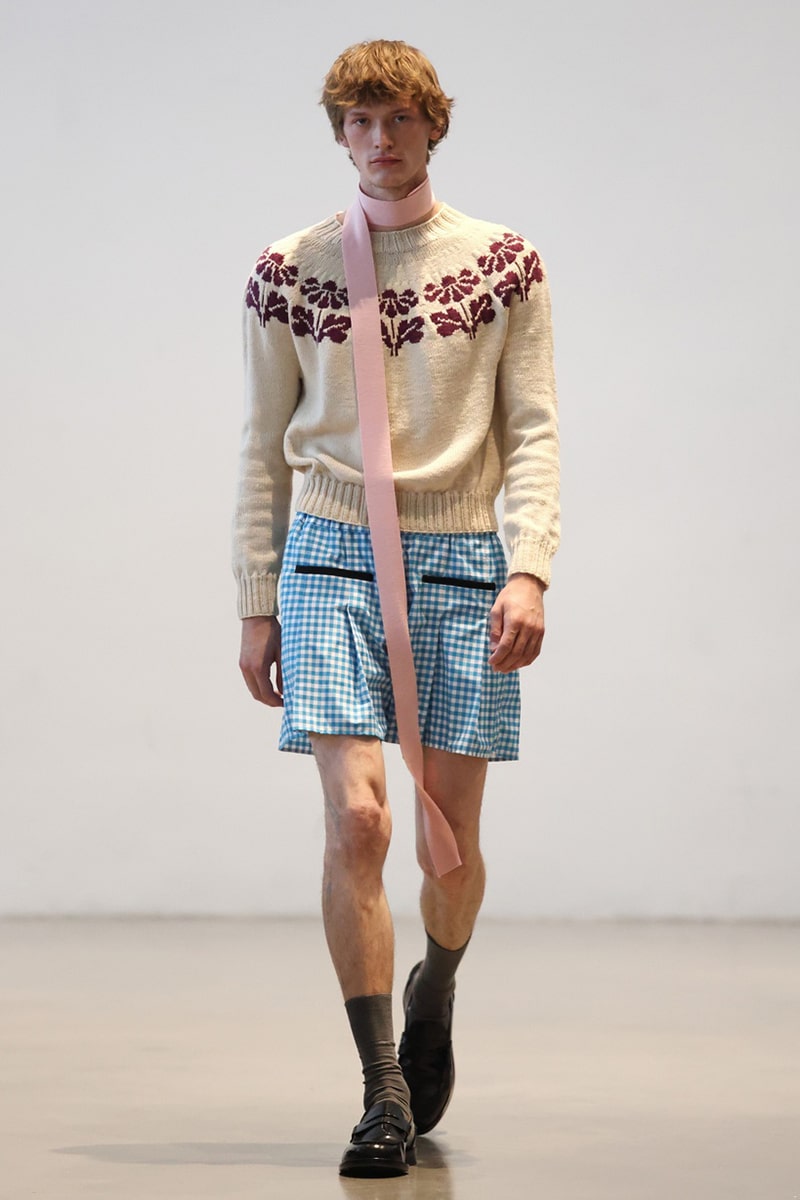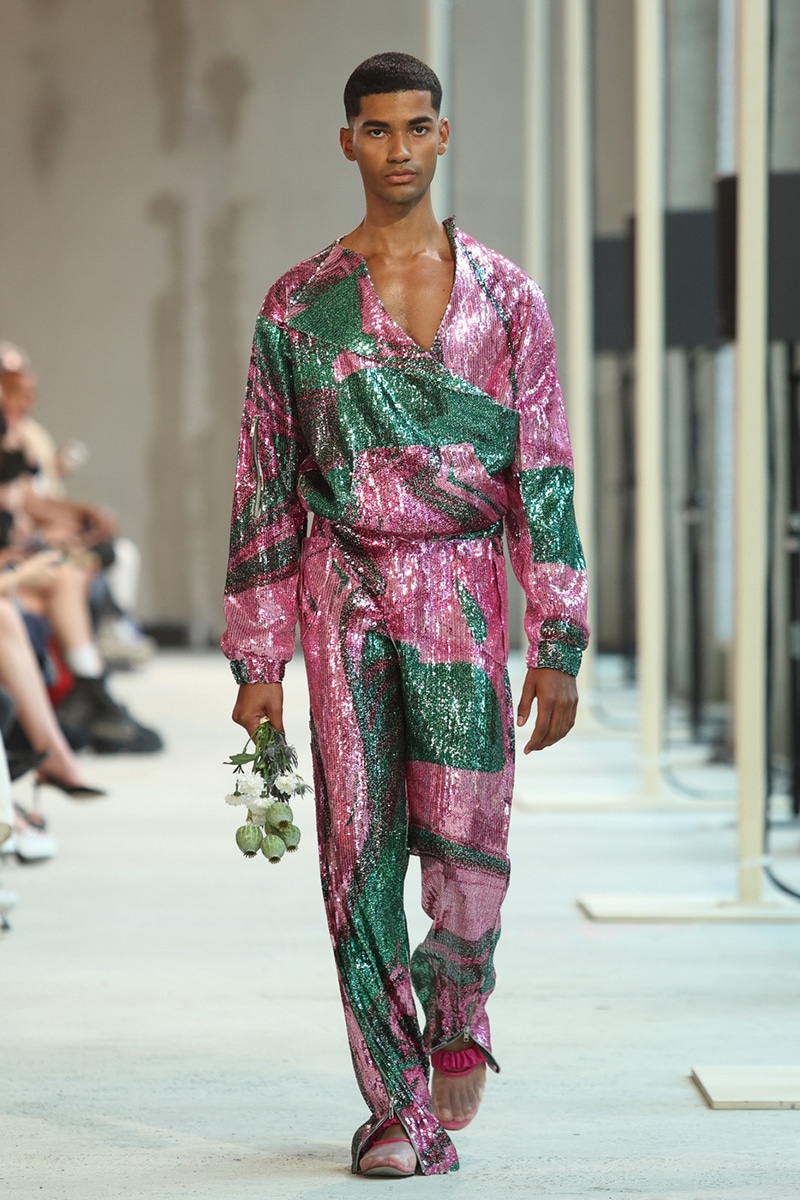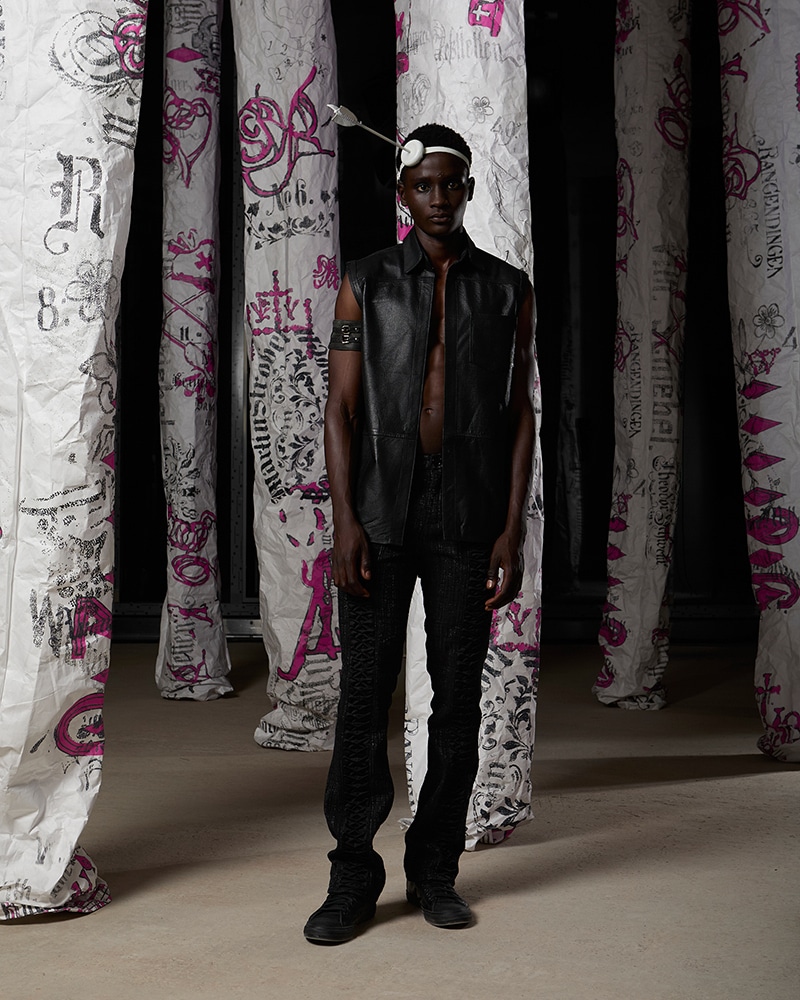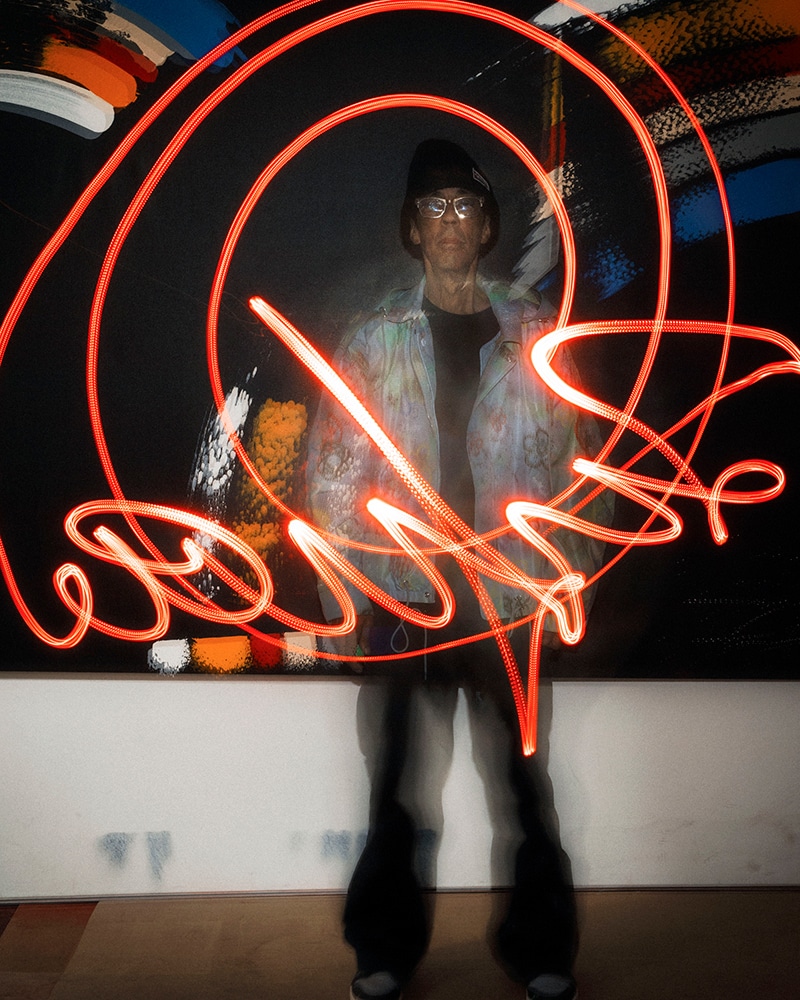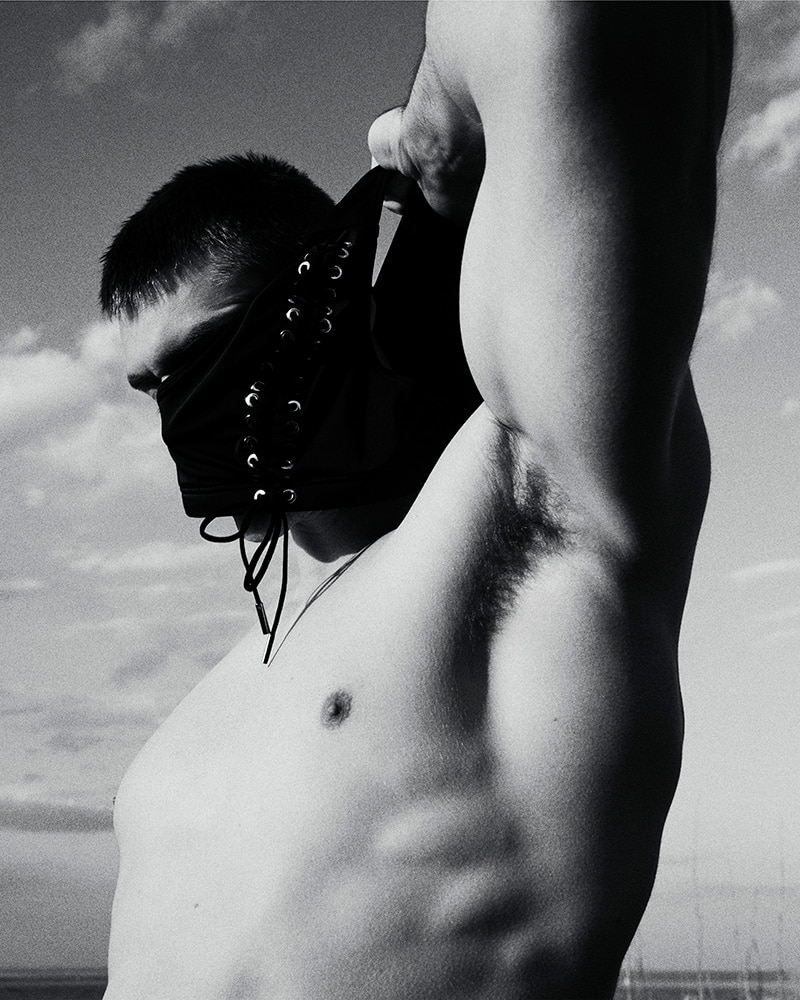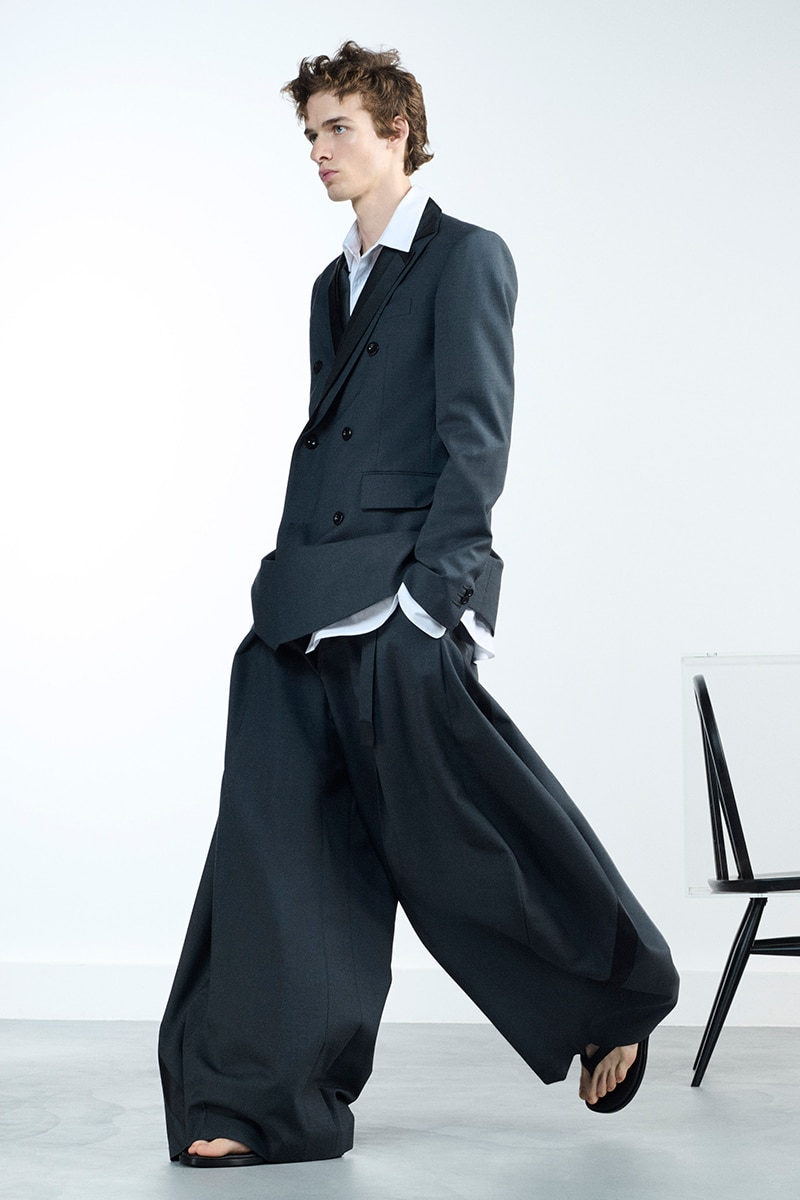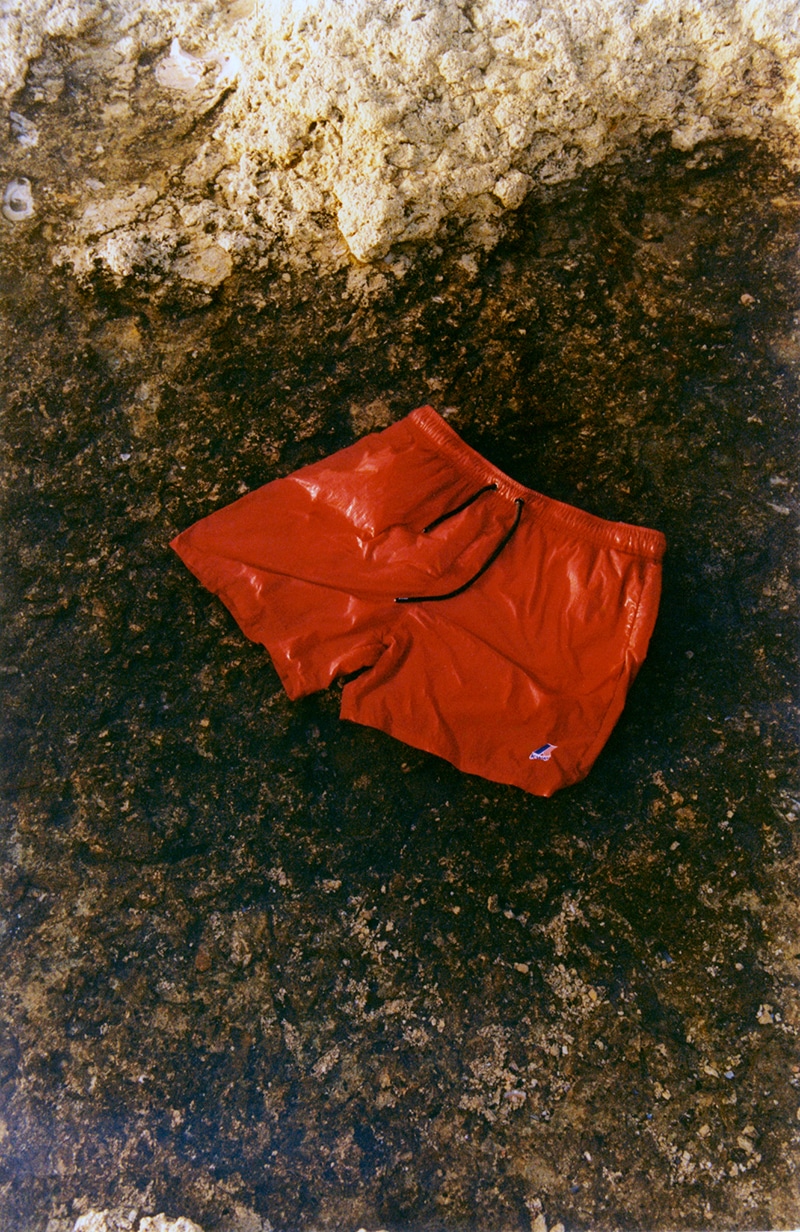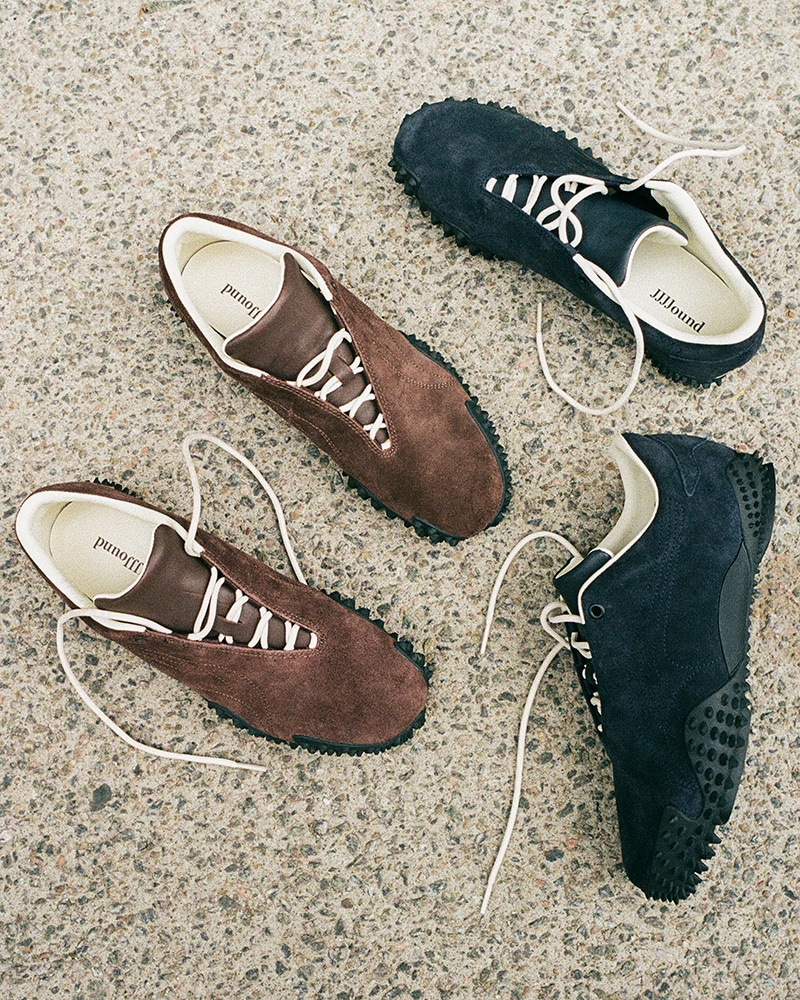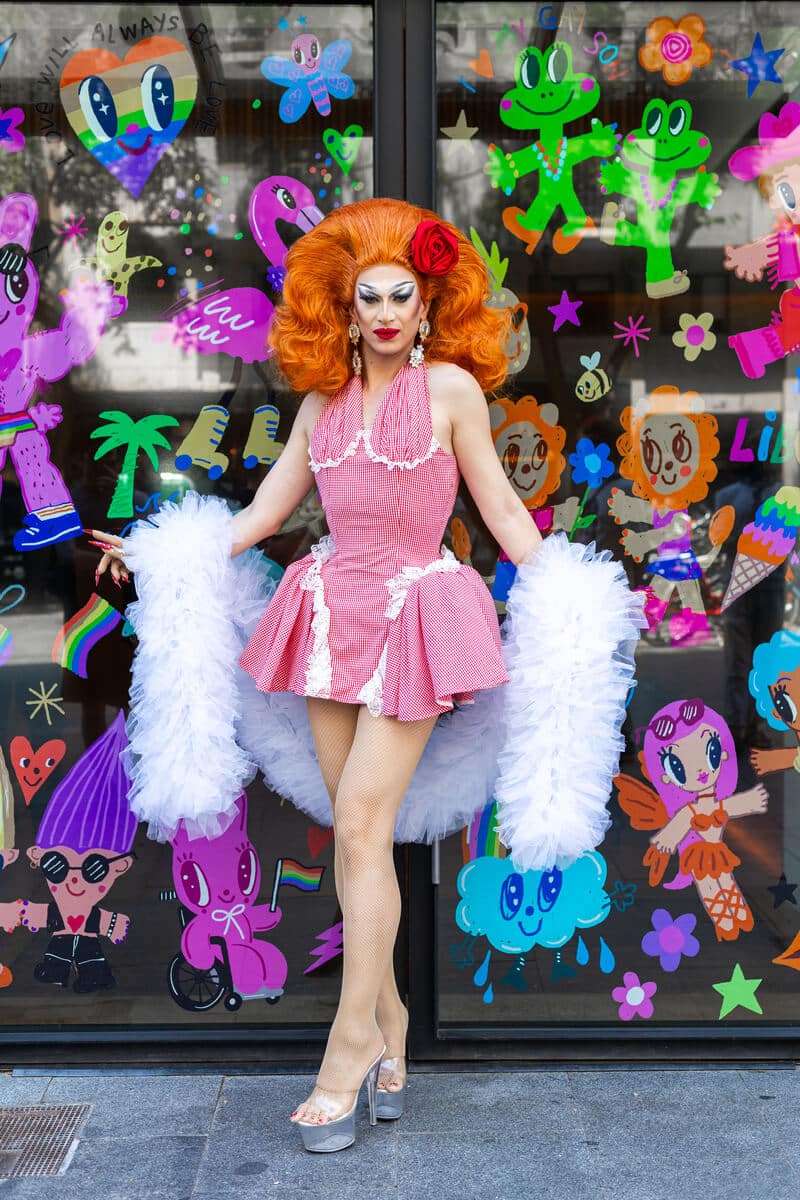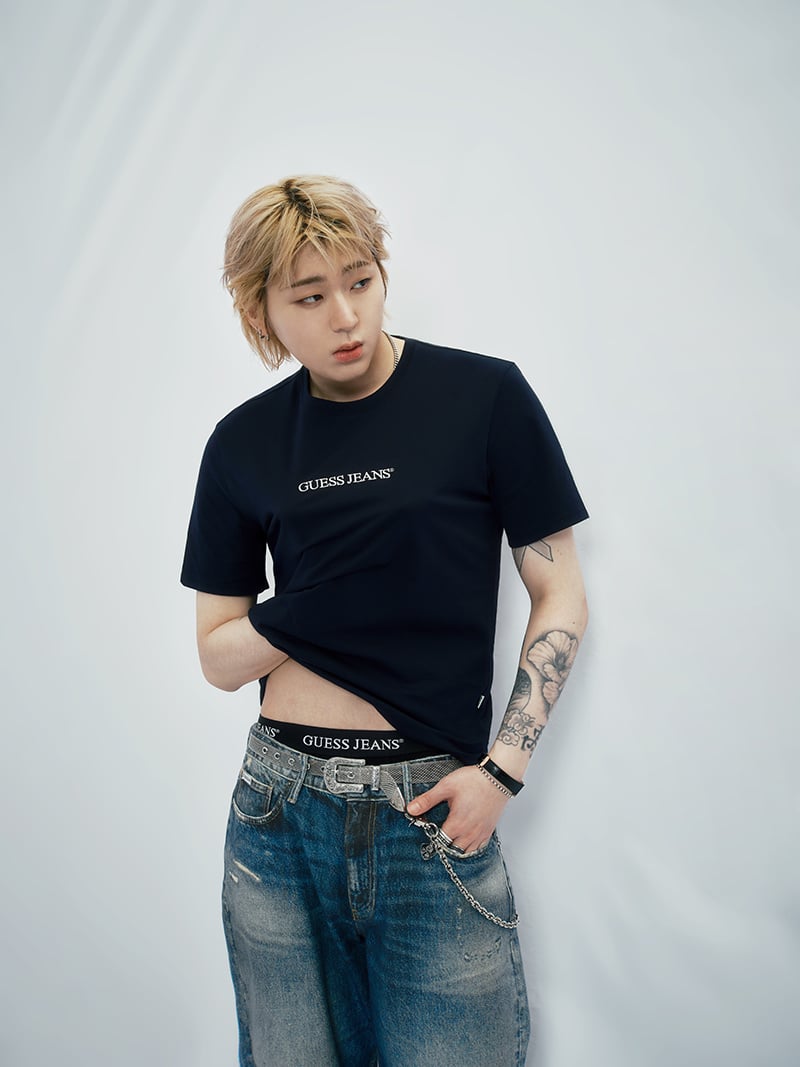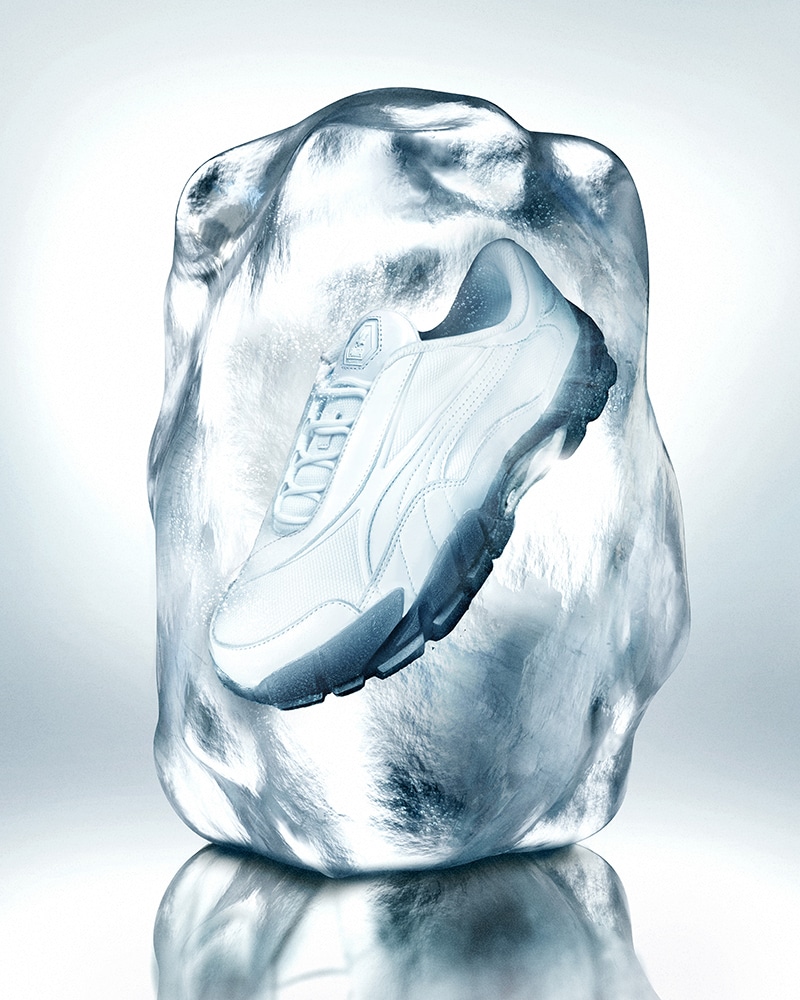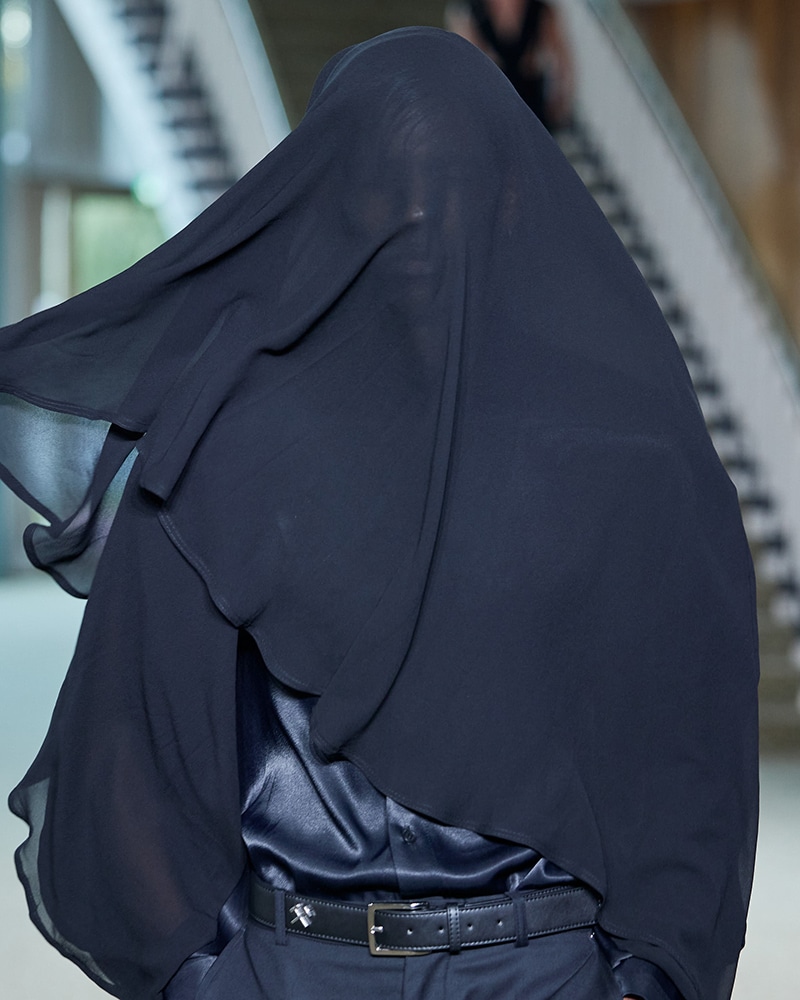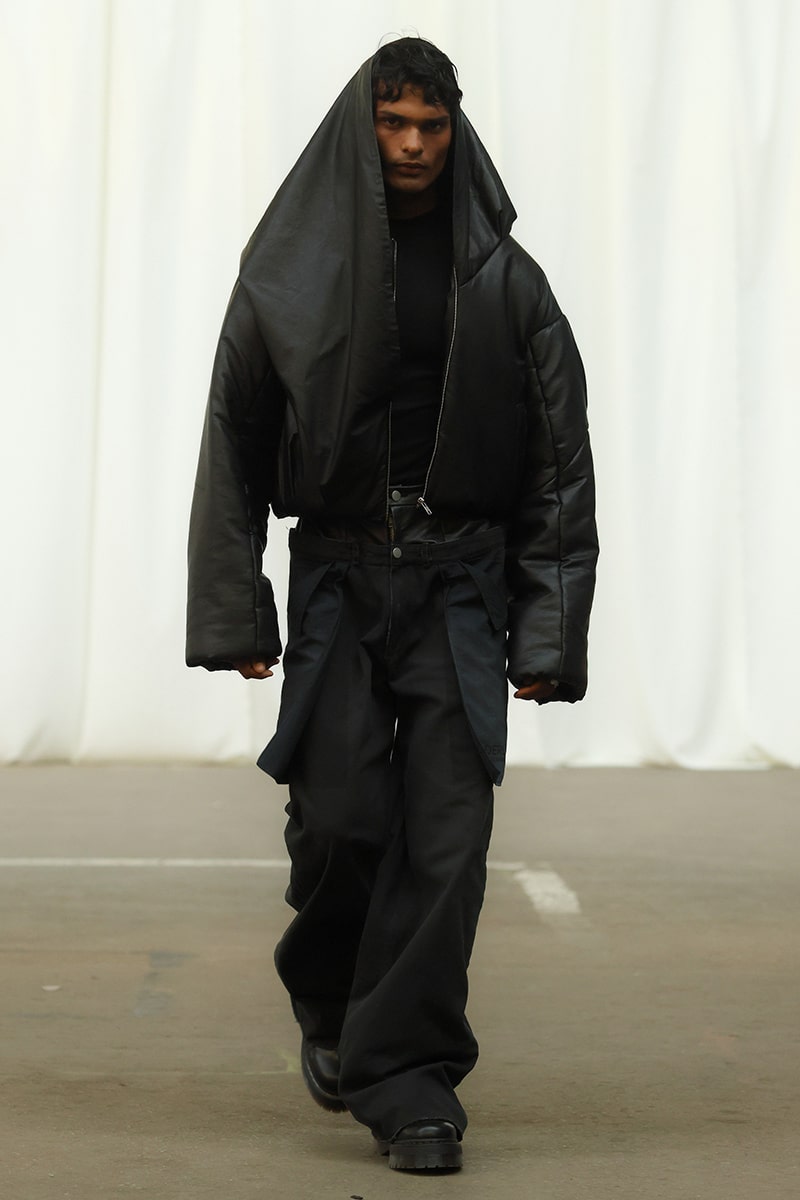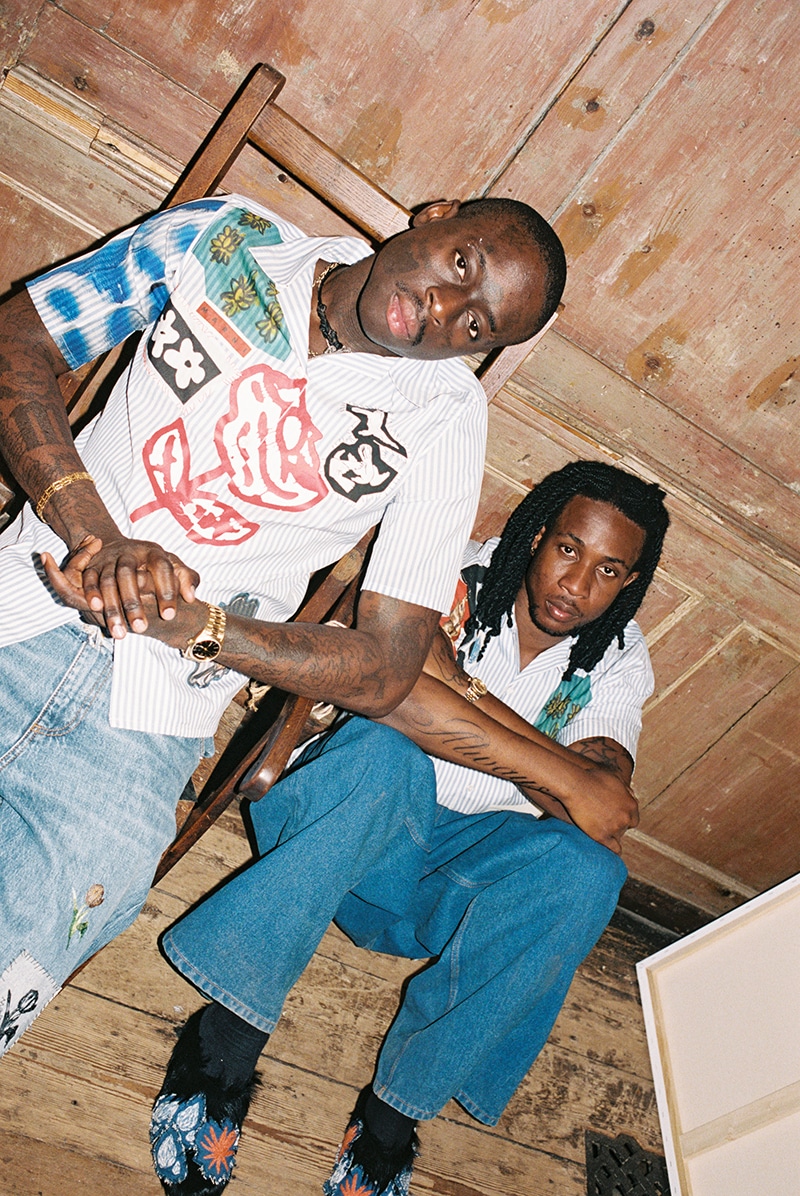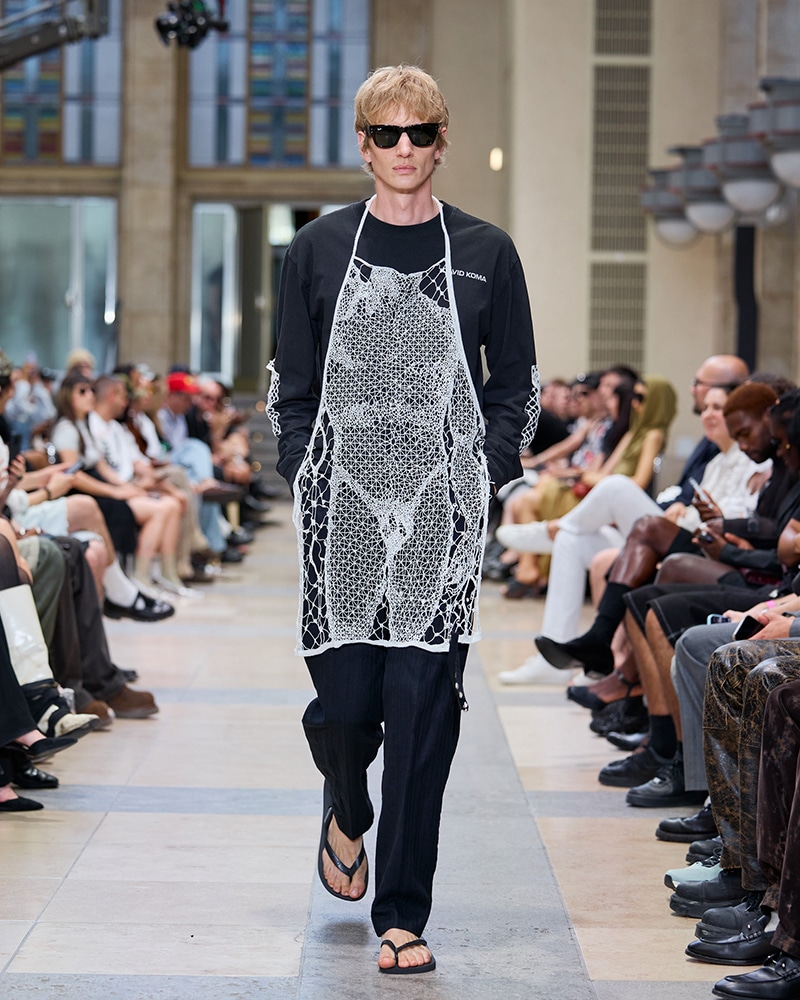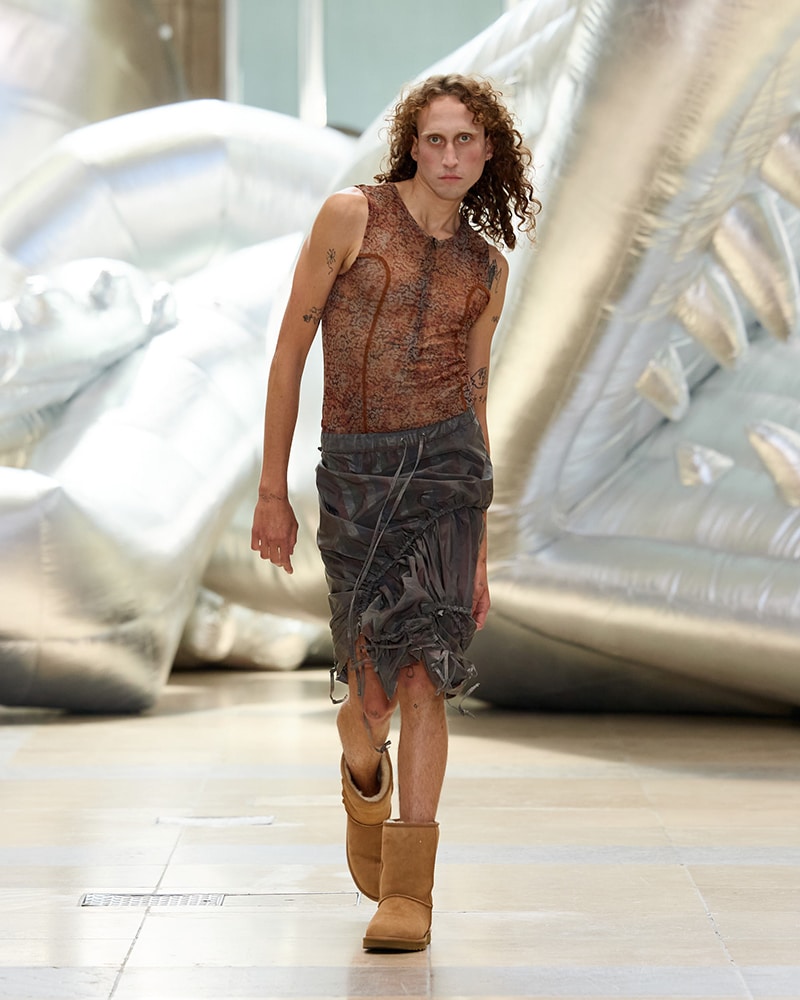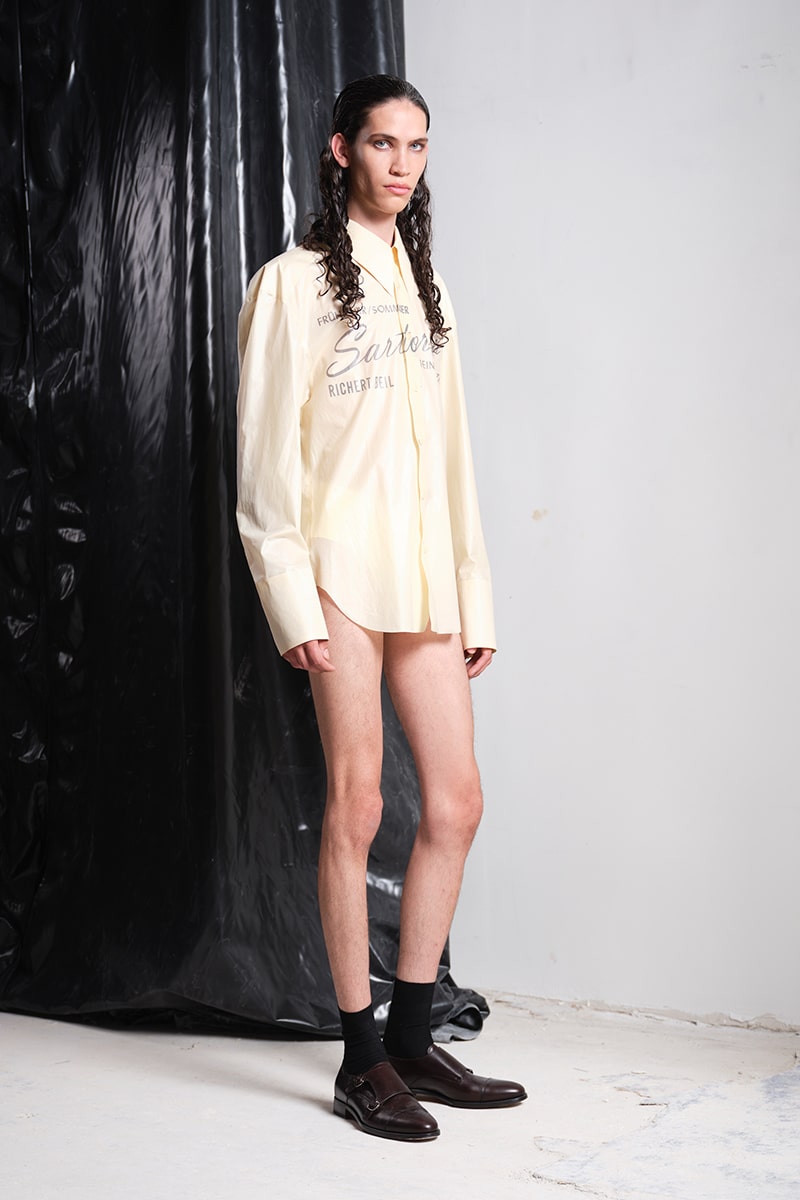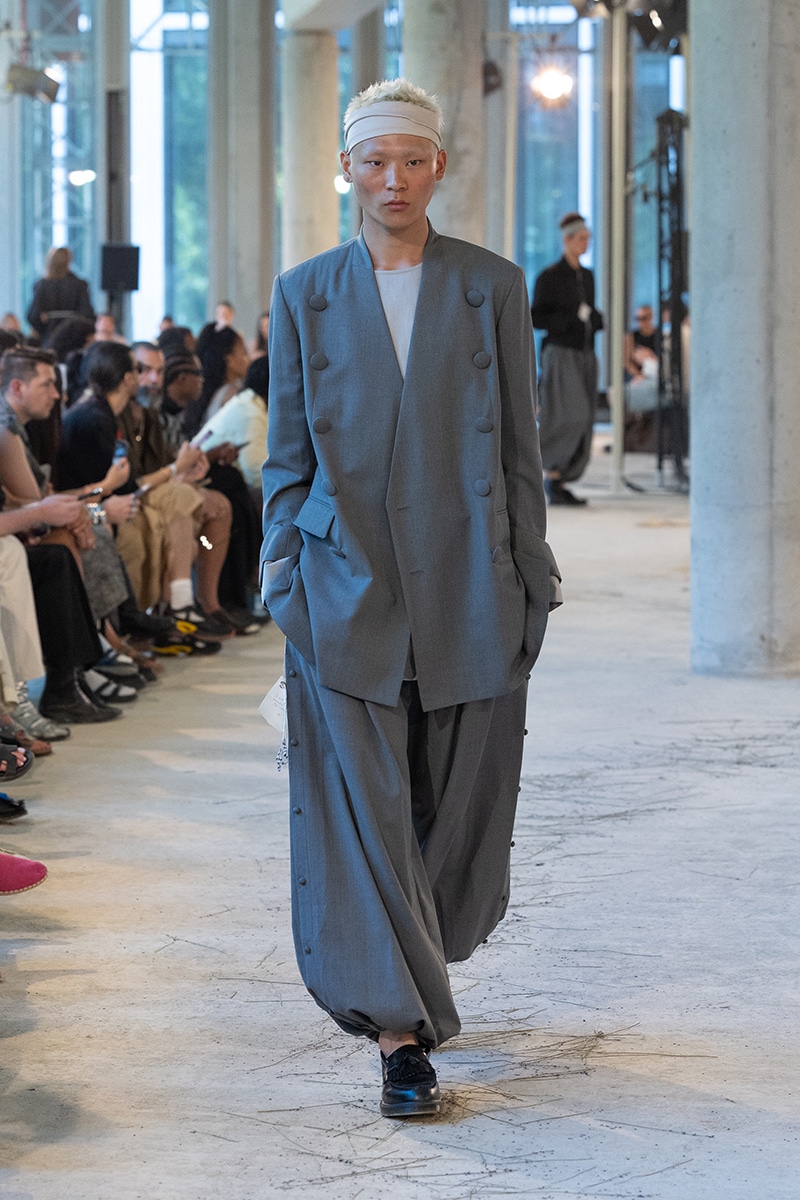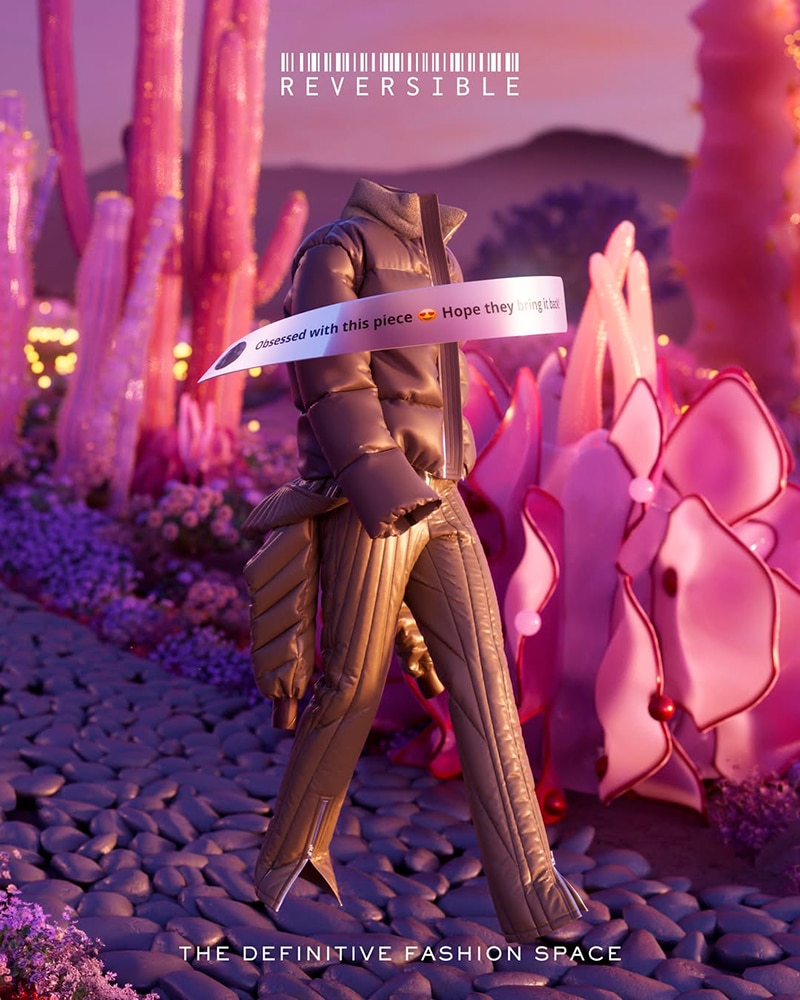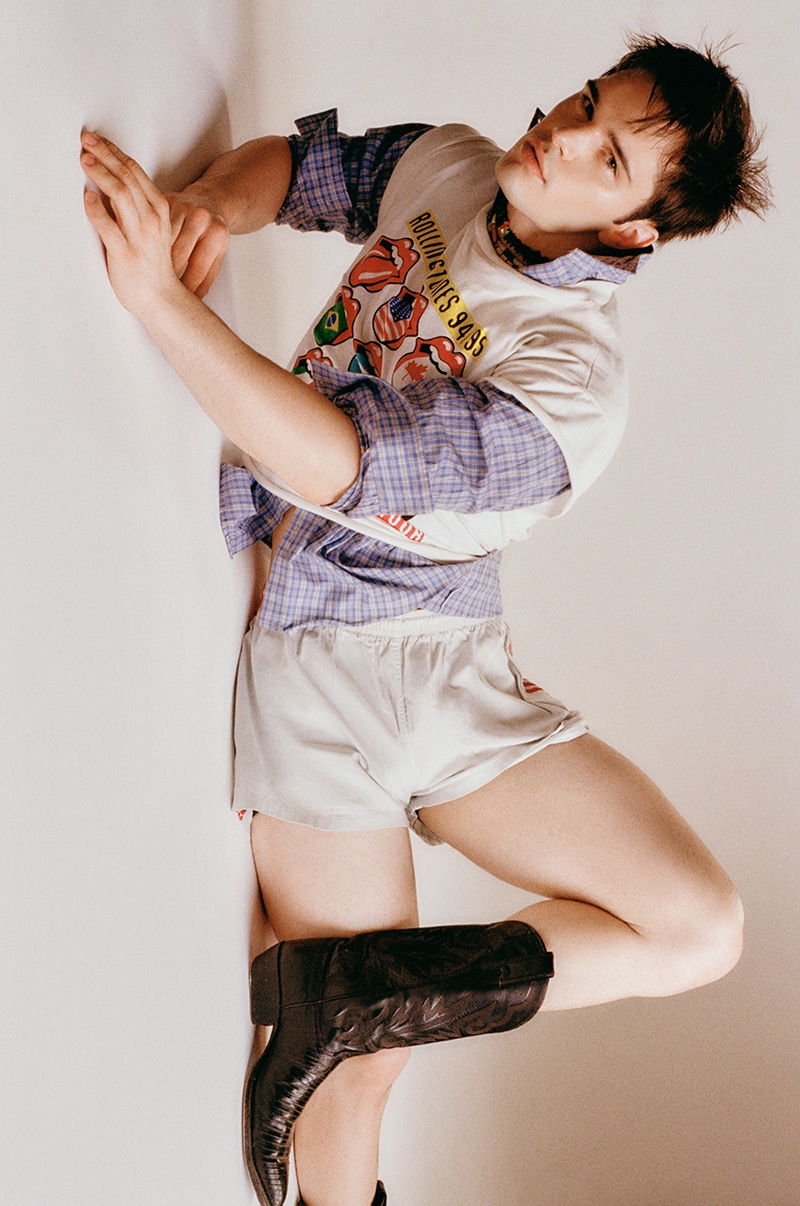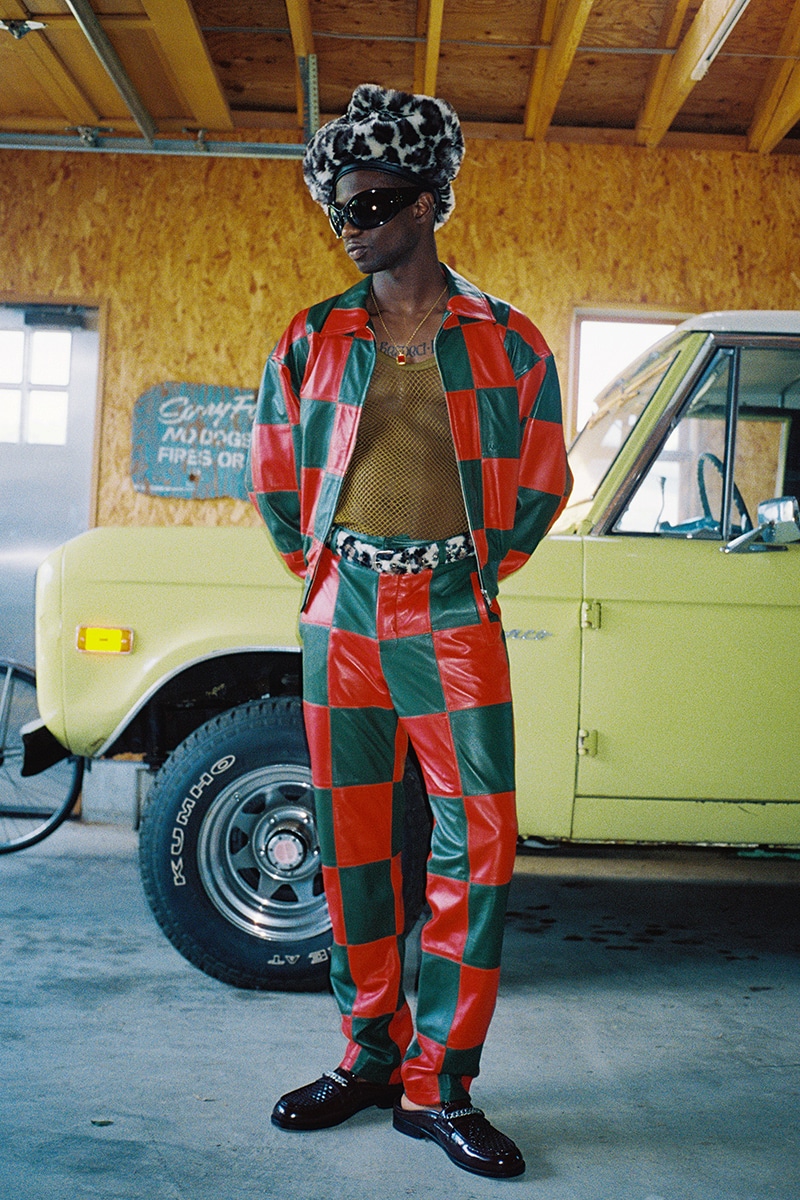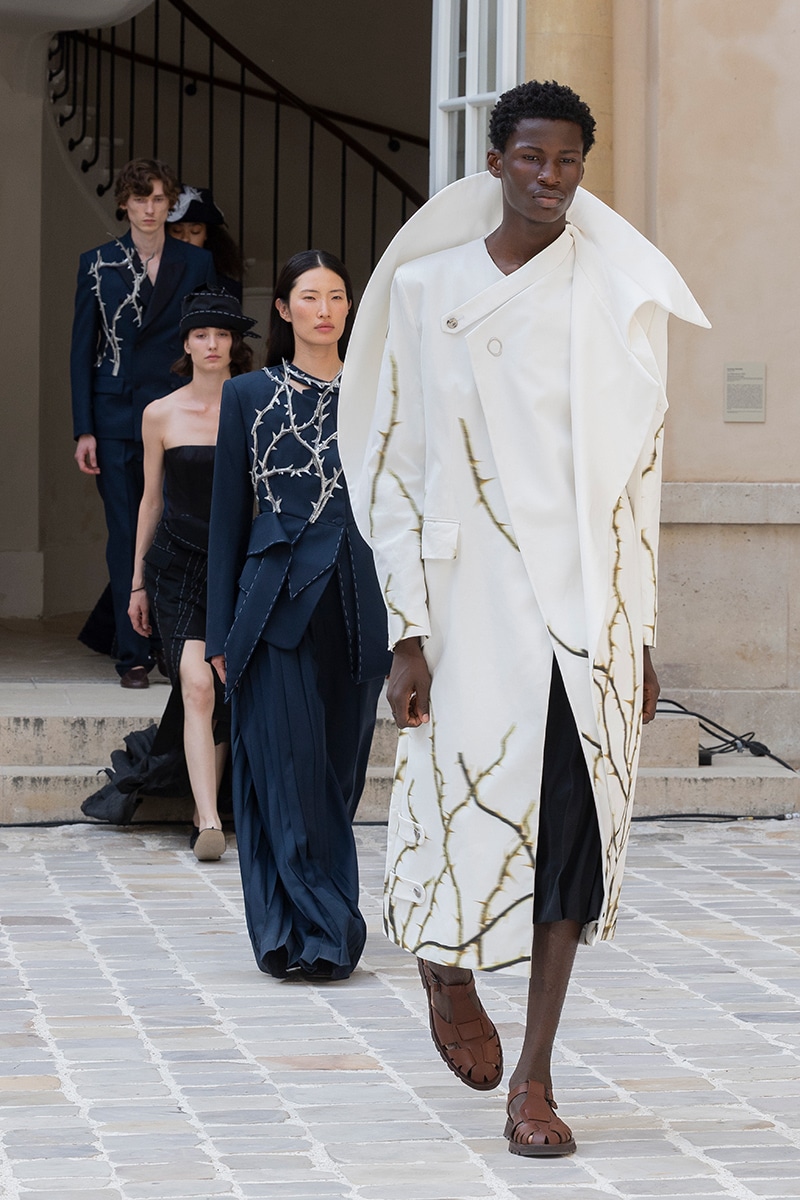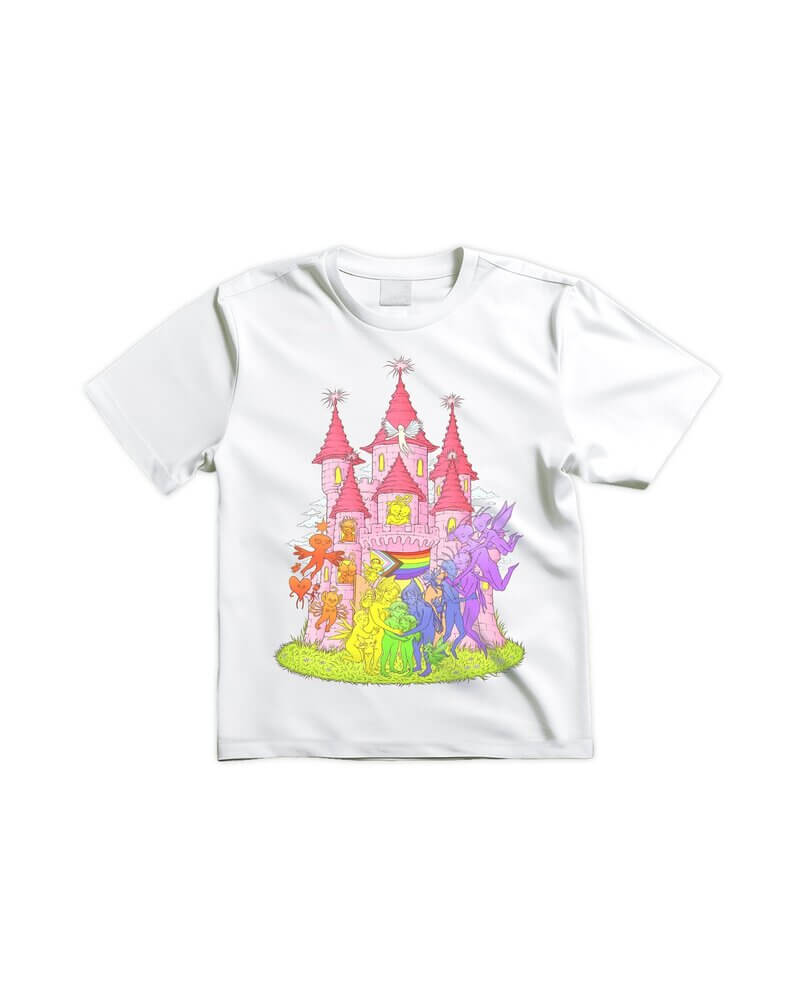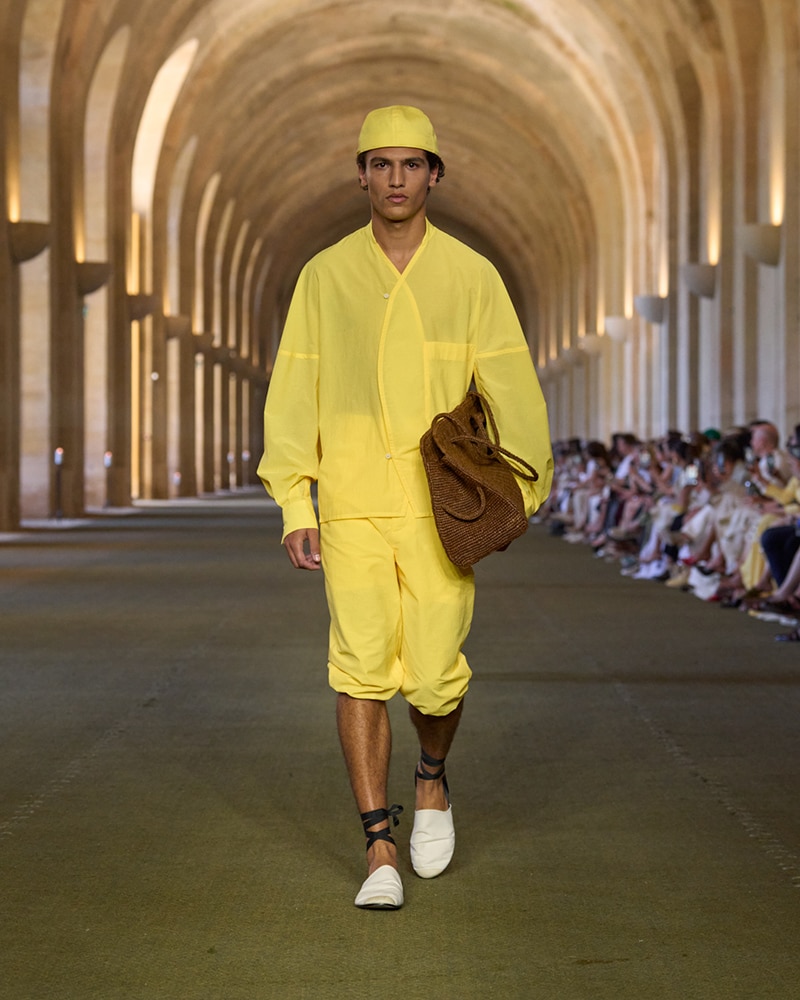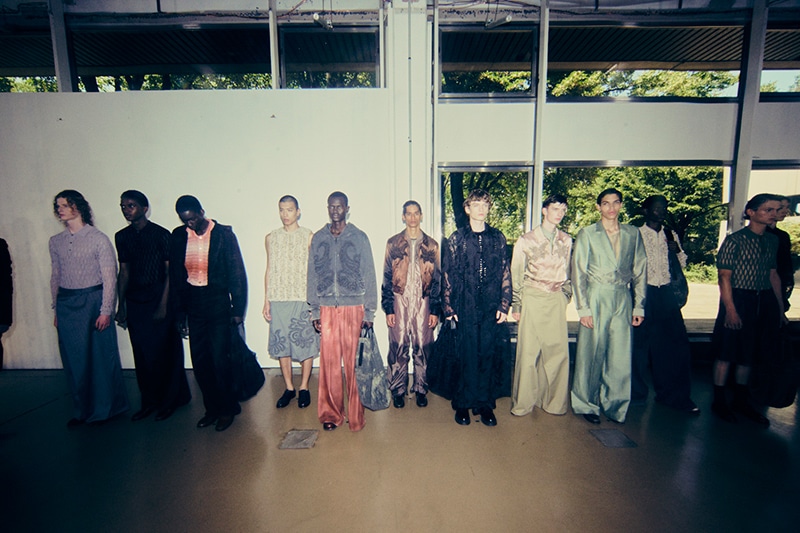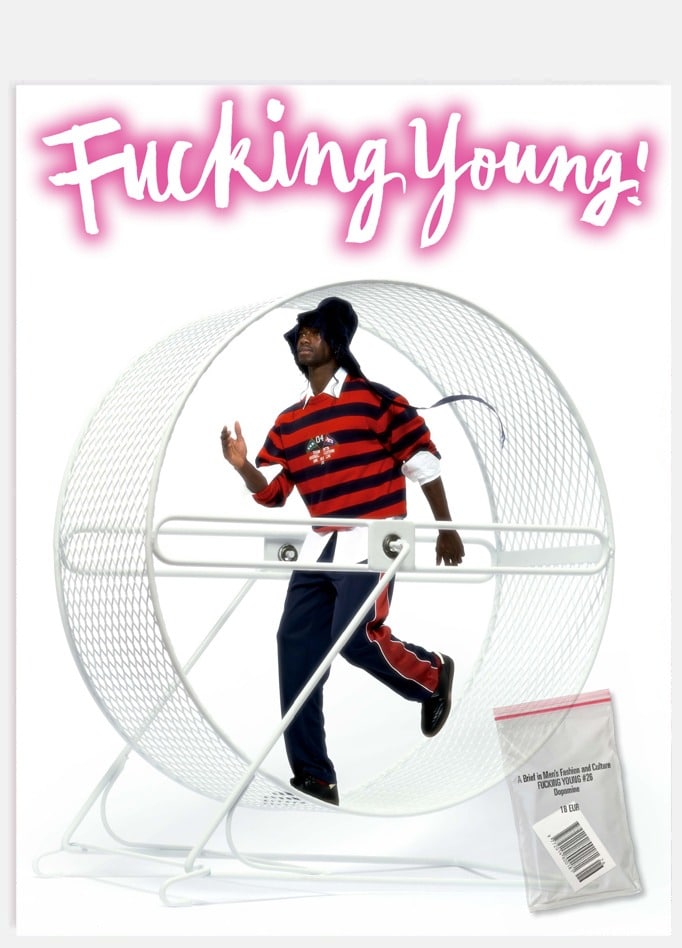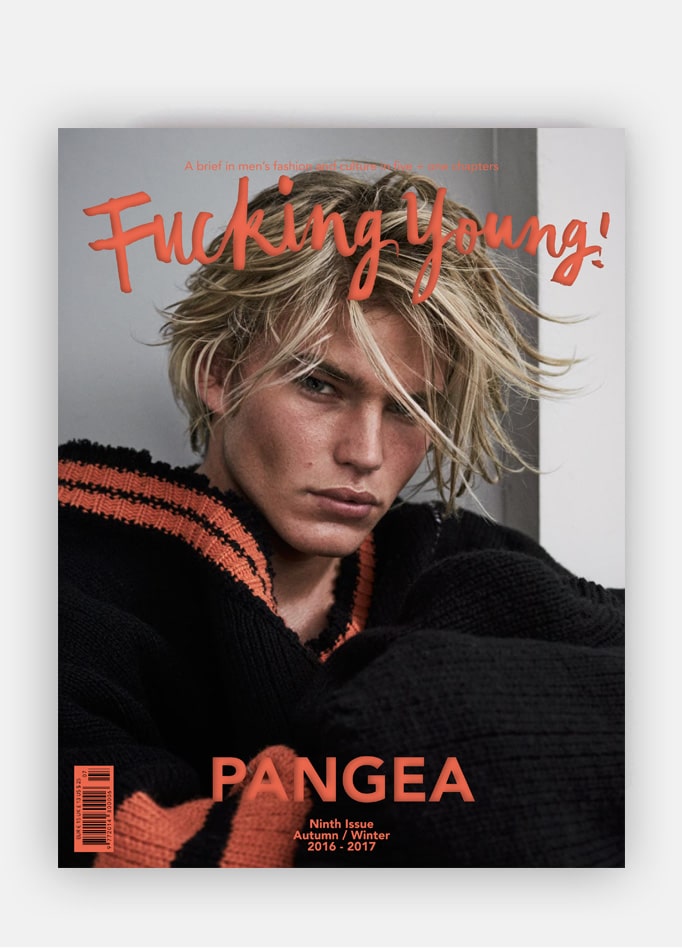“Sometimes it’s the journey that teaches you a lot about your destination.” – Drake, rapper
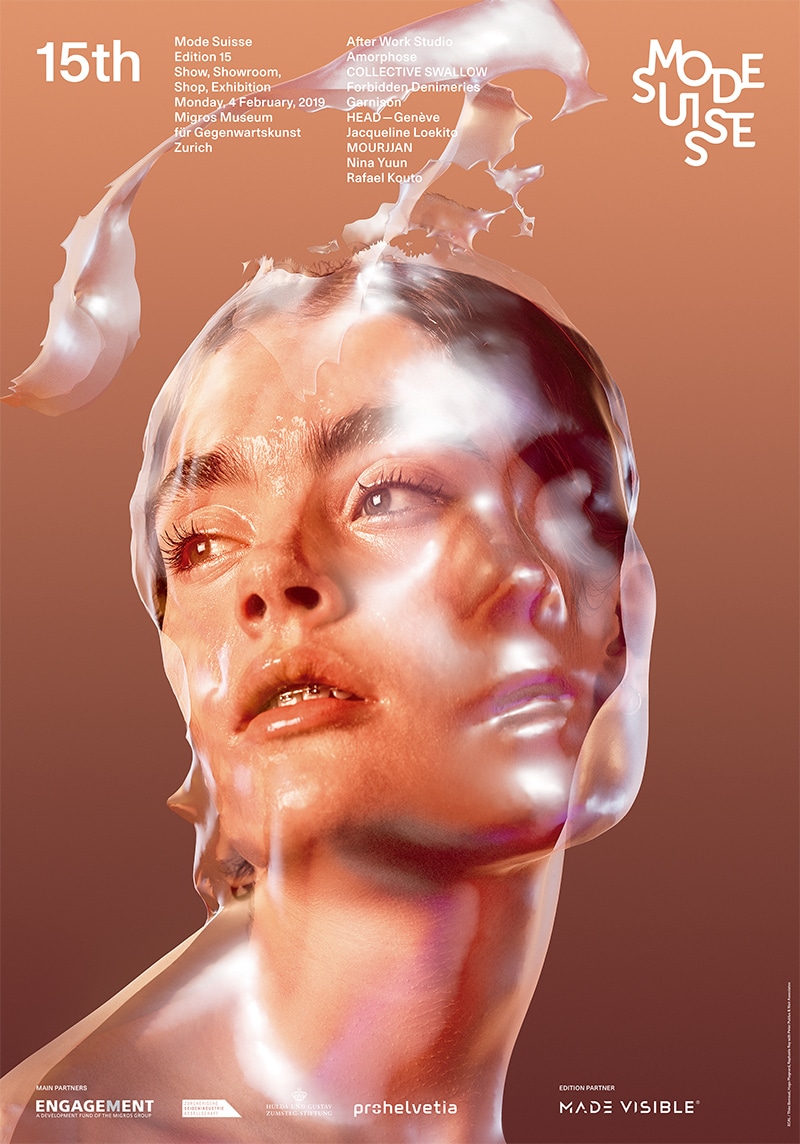
Two flight, one taxi, one train: in chronological order. The thousand (or so) kilometers that separate Naples from Zurich were unusually hard to travel but it was worth it. The edition 15 of Mode Suisse is an experimental evolution of the previous one: densely condensed, contextually interesting.
The event launched at Migros Museum of Contemporary Art on the evening of the last 4 February is, rightly, to be considered a Helvetic melting pot of talent and a specific research tool. It is a studied concentrate of shows, showrooms, and direct sales and a virtuous example to be exported.
We have chosen five designers and asked them the usual four questions.
Garnison – Luka Maurer
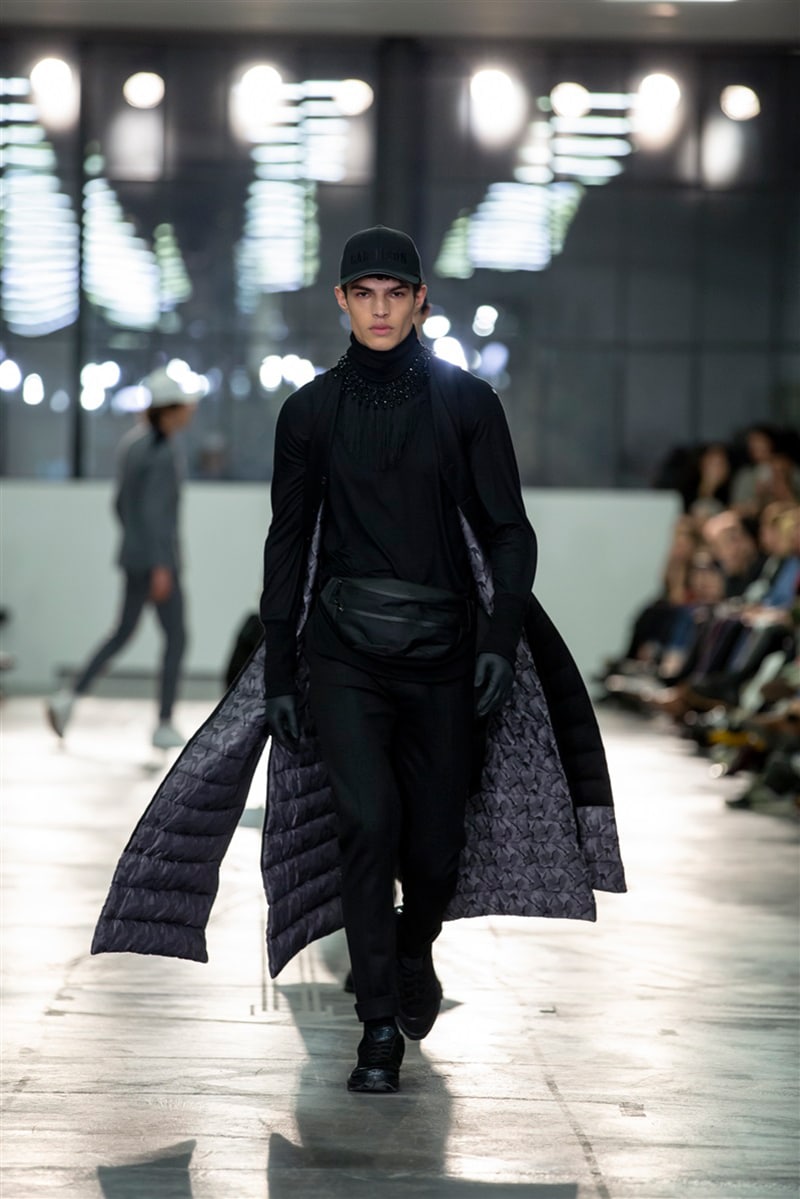
What is fashion for you?
Fashion allows me to give life to characters, only then I start thinking about the coherence of a collection.
What is fashion in Switzerland today?
Switzerland has the chance to be right in the center of the biggest fashion capitals (Paris, London, Milano).
The positive aspects are real dynamism and great creative influences!
The negative aspects are that we are in the shadows of these bigger brothers…even if we have the talents, it is difficult for the Swiss designers to get credibility outside our borders. The fashion market in our country is a little dollhouse, a Swiss designer has to sell abroad to survive.
Tell us something about your brand and the last collection.
I think that we are moving towards an aware Romanticism and GARNISON was created to shape the characters living in this upcoming paradigm. We are Heroes exploring their deepest spirit to reveal a new type of sensitivity to face the tomorrow challenges.
Why take part in Mode Suisse?
Mode Suisse is a great platform to get credibility out of our borders.
It is well organized and professional! In many Countries taking part in such a high-quality runway show costs a lot of money and is impossible. When in Paris people are amazed that I already get some shows behind me 🙂
Forbidden Denimeries – Mikael Vilchez
What is fashion for you?
Fashion is for me the best way to create bridges between different worlds, different references that inspire me and to propose my own vision of the world, my own scenario. Fashion I like is nothing short of Utopian, of better worlds that we dream of and that helps us move forward in life. Fashion is also a moment to pause, like a photograph of the era in which we live, questionings and current issues.
What is fashion in Switzerland today?
It’s a challenge! I recently read in an article that Swiss men’s market was reluctant to change, to a modern fashion. I find this to be a very poor vision of the Swiss man. I think that the Swiss are slower in adopting certain trends but are still inclined to evolve. Fashion is not part of Swiss culture, it is a question of education. The best way to change tastes is to jostle them! More and more emerging designers appear in Switzerland and fortunately, most do not only offer the conventional fashion that would be most likely to be purchased in Switzerland. The role of Fashion is to reflect the changes in the ways of life, and the evolution of society – not to confine oneself to the very narrow limits of the decent and the wearable, or worse: of the politically correct!
Tell us something about your brand and the last collection.
I founded Forbidden Denimeries in 2018 and only just presented my first collection at the 15th edition of Mode Suisse on 4 February 2019. Forbidden Denimeries challenges menswear codes by offering uninhibited garments inspired by references ranging from feminine to masculine figures, popular to classical culture, through a denim vocabulary. I like the idea of capturing the aesthetic of luxury and couture through unconventional but still very simple denim basics. My wish is to offer men the opportunity to assume freely who they are, regardless of the barriers of gender or culture. The Forbidden man can be both macho or very feminine, straight, gay or whatever else, so long as his development is respectful of the other. Forbidden clothes are also a way to democratize ideas – and what could be more democratizing than denim given its history!
Why take part in Mode Suisse?
I know Yannick Aellen since the beginning of my fashion studies; he always encouraged me a lot. I had already participated in Mode Suisse with HEAD-Geneva and had seen how much it is a truly professional production offering good visibility – and all for a lower cost thanks to partners and sponsors.
Even if my market is more in the big capitals of fashion, I am very attached to my country in which I feel good and I am convinced that the Swiss market can evolve if one encourages it!
Jacqueline Loekito
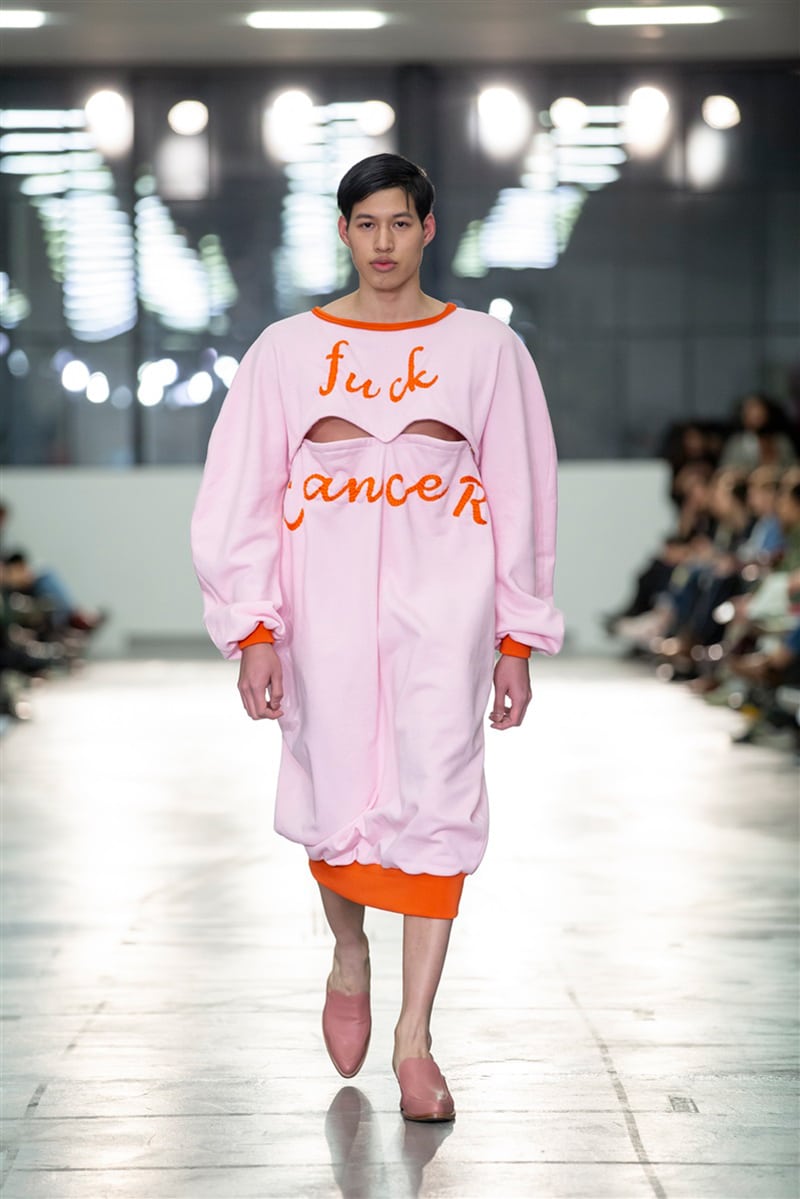
What is fashion for you?
It’s how I communicate to people about how I feel inside, and this is very important to send a message out through clothing…
What is fashion in Switzerland today?
People are hungry for something new and its slowly opening up which is exciting as there is plenty of talented designers.
Tell us something about your brand and the last collection.
My brand redefines distinctive heteronormativity within traditional fashion by creating artistic genderless collections. My vision is that Jacqueline Loekito garments can be shared between men and women from one wardrobe to another. Sharp tailoring juxtaposed against flattering lines and complimentary color palettes satisfy elements of both masculinity and femininity in each of her designs. Genderless clothing has been my vision since I began studying fashion in 2006. Where I believe that in the future there will be no separation between male and female clothing, my label radiates the perspective of there being no labels. My new collection is called Viviane’s Last Kiss’ is dedicated to the designer’s friend, Viviane Zitzer, who passed away last October after being defeated by cancer and this is a celebration of her life.
Why take part in Mode Suisse?
Because it’s a great platform for fashion and the only one in Switzerland.
Rafael Kouto
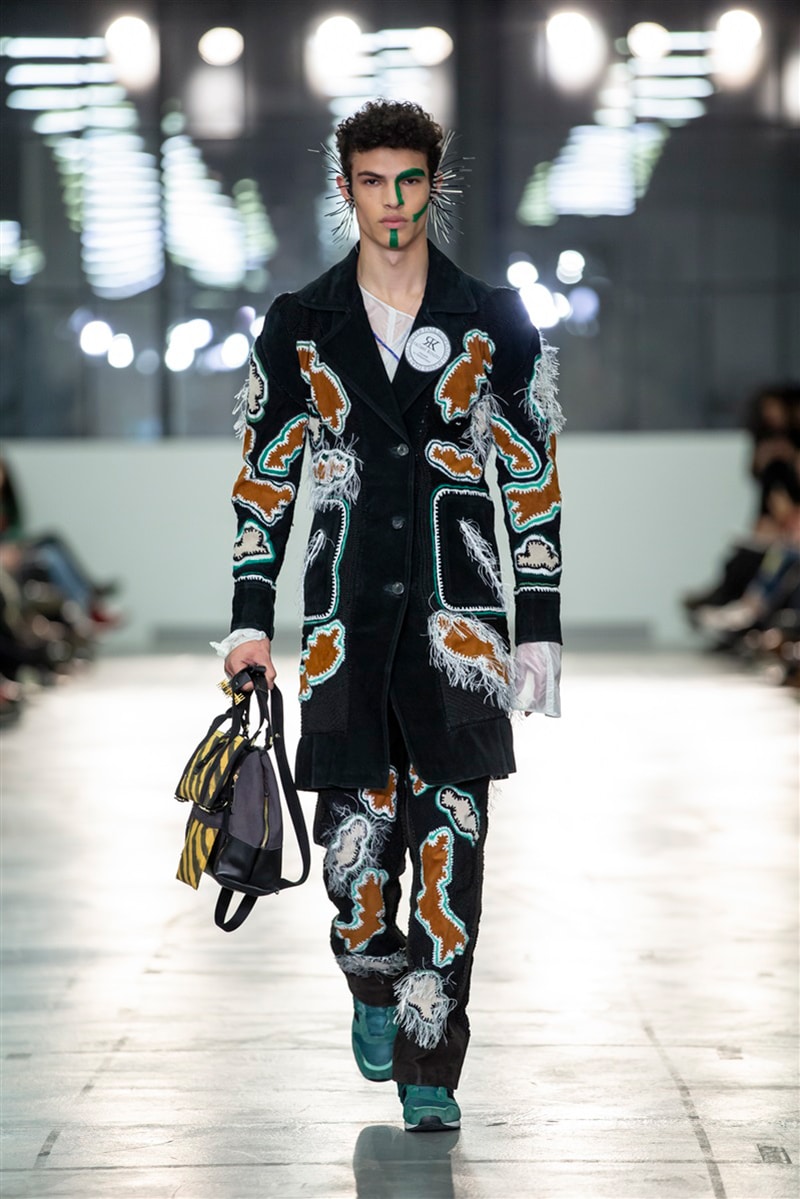
What is fashion for you?
Fashion is not an art produced in isolation, but it represents one of the most influential aspects of our culture as universal language, which definitely include dealing with environmental, political and economic issues. In which sustainability definitely represents an alternative to the current production in fashion as a new luxury paradigm.
What is fashion in Switzerland today?
Switzerland is not very well known as a fashion country, even if there are few international brands and companies based here.
In the past, and now there are still a few, there have been many embroideries, lace or print manufactures that have been producing for the biggest international fashion houses especially in Paris. Made in Switzerland is definitely still a guarantee of craftsmanship and good quality. Fashion in Switzerland is still very utilitarian and very functional based. I think that as a small country always interested in what’s happening in the fashion capitals of the neighboring countries, as Milan, Paris and Berlin, it’s starting to create an “incubator effect” for Swiss brands to be exported abroad.
Tell us something about your brand and the last collection.
The brand Rafael Kouto has a unique sustainable approach to fashion design and products. The main core is the customization and upcycling of mass-produced discarded garments into unique pieces, 100% remade in Switzerland. The potential of sustainable design and local production is giving a new value to the discarded materials as the main resource in partnership with Texaid. The cultural background and business model is based on Kouto‘s own cultural origins mixed with the practice of upcycling, which is very common in Africa. The concept and the hybrid aesthetic, between Africa and the West, are distinctive characteristics. It represents an alternative to the current production in fashion as a new luxury paradigm with the aim is to encourage recycling, upcycling, in the production of fashion.
The couture collection Suspended bodies that will never fall is based on the feeling of a state of uncertainty in which the future is caused by a static balance between opposite entities, that are not yet aligned. At this moment different entities such as human beings, clothes and waste are becoming suspended bodies, in which any movement is captured. If suspended bodies, will never fall, it represents new escapism. The Swiss textile heritage and African craftsmanship form a new unity, the propaganda to “Make do and mend” is not based on War Times, the Swiss military aesthetic is exotic and dazzled. It is also including different collaborations and also with the Swiss bags Qwstion in which the used and returned bags were the material and the starting point. The upcycled bags have been transformed into new multifunctional pieces that are made to order.
Why take part in Mode Suisse?
Mode Suisse represents the biggest and most international platform for Swiss brands and a very important first step to connect with the Swiss fashion scene and market and also to be supported internationally.
HEAD GENEVA – Valentine Ebner
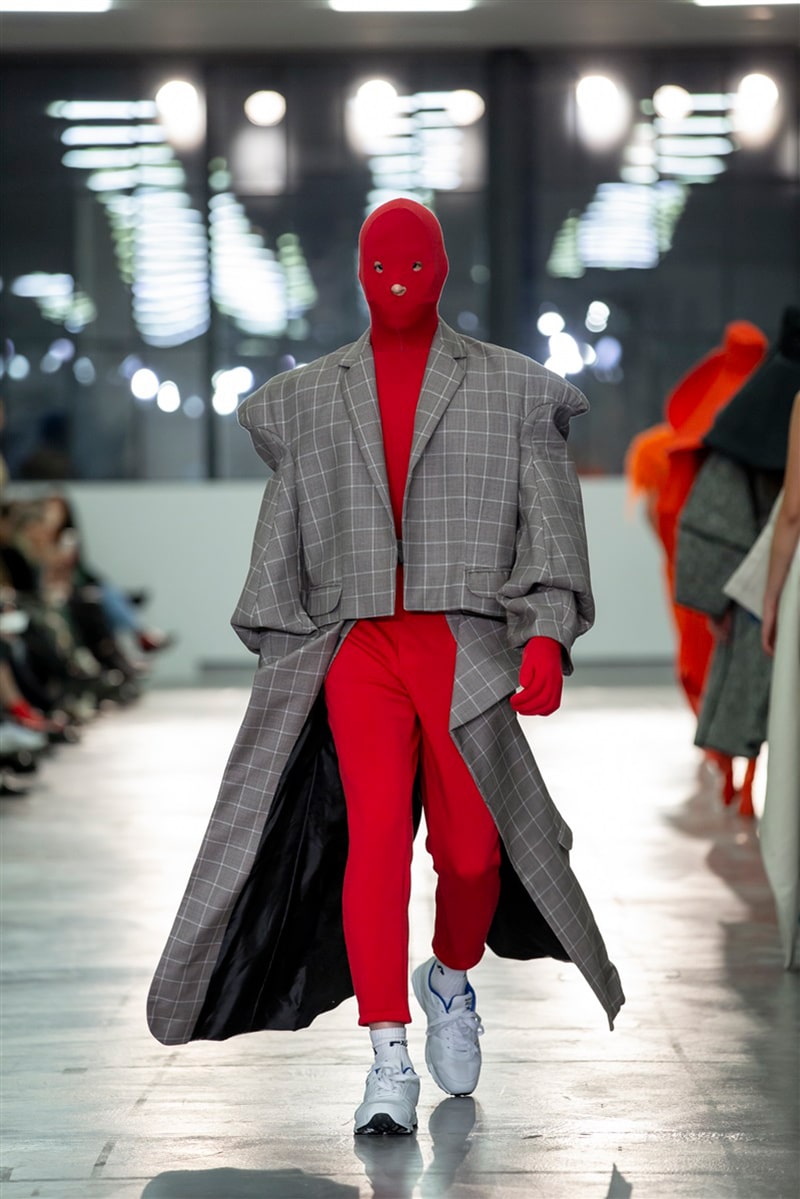
What is fashion for you?
Fashion is a profession, an industry, clothes, desires and passions, language, and processes. The term fashion encompasses a range of interpretations as broad as the spectrum of fashion styles. As a school, we have the mission to accompany future fashion designers in the understanding of this universe and help them to position their values and their style.
What is fashion in Switzerland today?
Fashion in Switzerland is mainly a constellation of small labels with very different styles of the world, but with an international mind.
Tell us something about your brand and the last collection.
As a school, we do not really have a brand spirit, even maybe a style is discernible, but we try hard to push students to develop their own style language and their vision of fashion process.
Why take part in Mode Suisse?
We participate in Mode Suisse since its first edition, it seems important to support this initiative by our presence, because it is THE fashion platform in Switzerland. With the difference of language, there is a border between French-speaking Switzerland and German-speaking Switzerland. Participating in Mode Suisse helps to cross this border, and to join a national framework, which is important for our Geneva-based school.
It is also for our students and alumni, the opportunity to confront the public outside the parade HEAD-Geneva and meet other labels and designers.
What is fashion for you?
Fashion is for me a way to communicate with the world, the most decent way to present my inner self to anonymous mass.
What is fashion in Switzerland today?
I have been in Switzerland for 3 years now. Interestingly, it seems very conservative at first sight, but in close, It is very exciting. They (Mode Suisse) feature every season such a variety of designers with different styles. Swiss fashion field is open for newcomers, integrating new designers from various backgrounds. It has a bright and dynamic future to come!
Tell us something about your brand and the last collection.
NINA YUUN is the eponymous brand that I launched last year right after my graduation from Basel. The debut at Mode Suisse 14 was surprisingly well received and we were immediately received by the best Swiss retail shops. For this season we are presenting SWIRL: The Myth of Authority also in Paris hoping for some expansion. Swirl collection is about dissolving any authority metaphorically by mixing up the details from typical “business” garment into another context, creating a feminine, organic form.
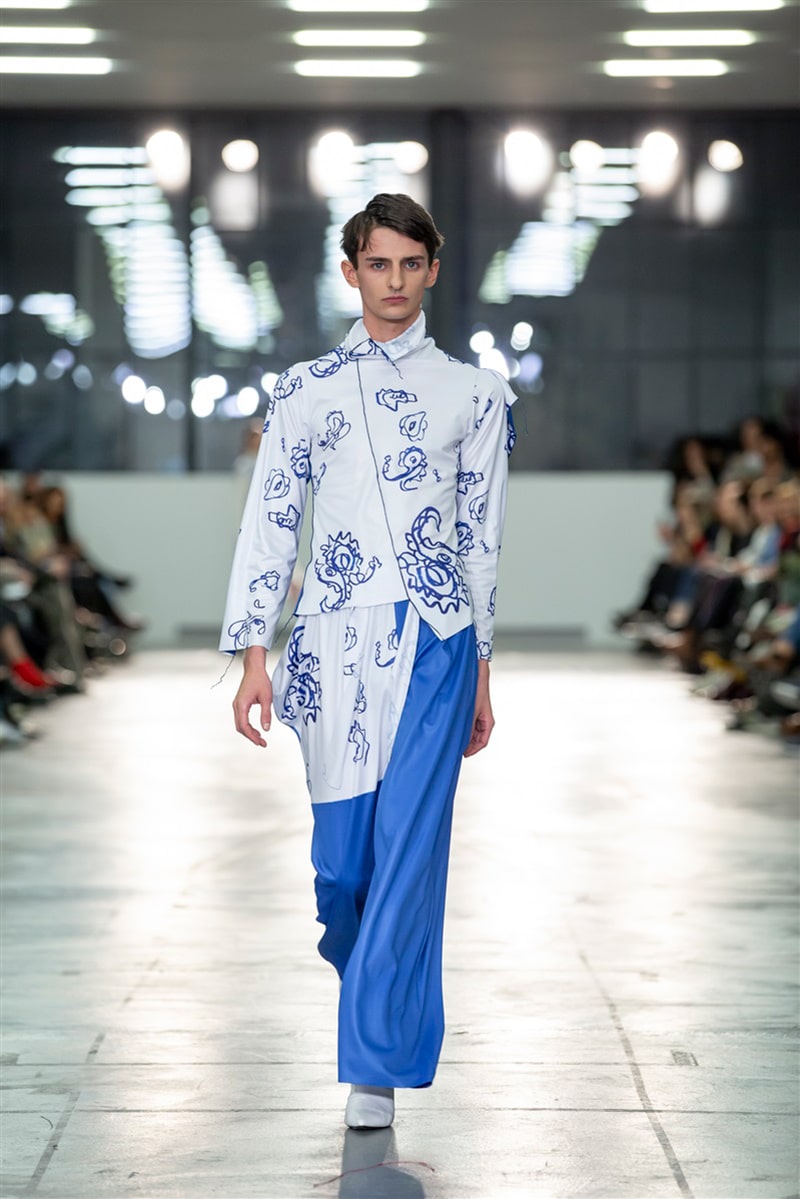
Why take part in Mode Suisse?
Firstly I am right now based in Switzerland, and I have figured out this can be a very stable “base camp”. Also, as I have mentioned above, it is the most welcoming and opened fashion community I have ever seen. It is somehow like the center of a spider web, connecting all other European fashion designers.

